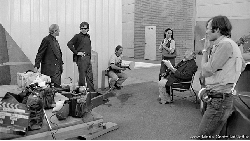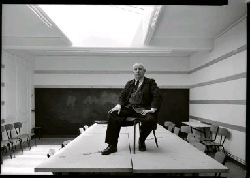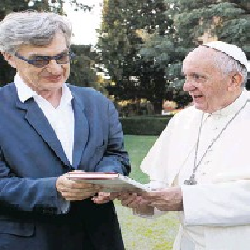September 2018 Culture and Society
Read the articles selected in September 2018
Alzheimer comment faire face?
By Élodie Lepage e Bérénice Rocfort
Source: L’Obs, 13 September
This is the Alzheimer’s Century, pathology since ever known as a manifestation of the senile condition and now object of an extreme medicalization. Meanwhile, alternative treatments show that it is possible to treat the patient without violating his dignity.
“The Other Side of the Wind” dazzles, puzzles and intrigues
Source: The Economist, 3 September

An experimental, unfinished film by Orson Welles has been funded and completed by Netflix. With an autobiographic subject, it represents the exclusive society of his friends shot in a chaotic party. Someone could wonder if, with another paternity, the film would have been as much of interest.
Read more:
Paul Virilio, premier sur la vitesse
By Robert Maggiori
Source: Libération, 19 September

Paul Virilio has theorized the science of velocity as the existential dimension of the postmodern civilization, characterized by the supremacy of technology, and the military logic of a war without apparent weapons, which intends the progress in the sense of conquest and expansion.
Der Himmel über Golgatha
By Nicola Kuhn
Source: Der Tagesspiegel, 16 September

The central table of the Isenheim Altar, one of the highest expressions of the Western art, painted by Matthias Grünewald between 1512 and 1515 to represent the tragedy and the horror of the Passion and currently conserved in Colmar, by the Underlinden Museum, is going to undergo to a long restoration.
The great displacement
Source: The Guardian Weekly, 14 September
At least 66 million people are displaced globally, regardless of their legal status. The political and public hostility shown in the Western countries toward this reality has ended up encouraging the traffic of human beings. The United Nations are mobilized for a coordinated approach to migrations.
Wim Wenders donne des ailes au pape François
By Jean-Marie Guénois
Source: Le Figaro, 12 September

In a short film realized for the Vatican on the figure of Pope Francis, Wim Wenders takes on the hagiographic genre and even if perfectly centered on the objective of a communication operation, he doesn’t give up his style, restoring the images with the same weight of the words.
A manifesto for renewing liberalism
Source: The Economist, 13 September
Classic liberalism has been a driver of progress, democracy and wealth. The retreat of liberal democracy urges the leadership to rethink its closed and complacent meritocracy, to embrace the radical meaning of the liberal idea.
Read more:
https://www.economist.com/leaders/2018/09/13/a-manifesto-for-renewing-liberalism
The catastrophe if another global financial crisis strikes
Source: The Economist, 12 September
In a middle or long-term, protectionist measures can trigger a deep recession. International cooperation is crucial to the security and prosperity of markets, to the geopolitical stability and to knowledge. Without it, the world risks to not survive to another financial crisis.
Read more:
Luigi Cavalli Sforza, el genetista che desmontó el racismo
By Luca Tancredi Barone
Source: El País, 4 September
This scientist disciple of Giuseppe Levi has shown before the first sequence of the human genome, that we all come from Africa and the race is rather cultural than a biological concept.
Also Eurer Liebe ganz unwürdig
By Hannes Schwenger
Source: Der Tagesspiegel, 6 September
An epistolary by Ludwig Wittgenstein introduced and co-published by Brian Mc Guinness presents for the first time in a complete version the letters to the family, many unknown, where the voice of the author takes the place of many legends and mystifications that have been produced on his personality.
Stefan Zweig
By Dominique Bona
Source: Le Figaro, 6 September
A collection of articles by Stefan Zweig, written in the “Neue Freie Presse” between August 1914 and October 1918 show how the author of The World of Yesterday during the first world catastrophe has become aware of his pacifism, a not innate feature of his humanism.
La guerre que les Belges ont déclaré
By Marie Piquemal & Thibaut Sardier
Source: Libération, 4 September
In Belgium they have proposed the “abolition” of the complex French rule about the correspondence of the part participle after the auxiliary have, triggering a quérelle between those that see in the language a possible source of discrimination and those that never would give up their own national identity.
Info
- Pubblicato il : 01/10/2018 Modificato il : 04/04/2019
Allegati
- Der Himmel über Golgatha pdf
- Paul Virilio, premier sur la vitesse pdf
- Alzheimer comment faire face? pdf
- Wim Wenders donne des ailes au pape François pdf
- The great displacement pdf
- La guerre que les Belges ont déclaré pdf
- Stefan Zweig pdf
- Also Eurer Liebe ganz unwürdig pdf
- Luigi Cavalli Sforza, el genetista che desmontó el racismo pdf

